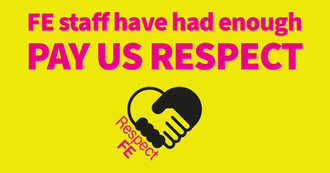-
#CollegeCutsKillCommunities Stop job losses at UHI Shetland and the attack on rural communitiesThe loss of staff and educational provision on this scale will have a hugely detrimental impact on the community of Shetland - on the staff who will lose jobs and livelihoods; on rural and isolated communities; on the local economy and on the young people who have a right to access tertiary education locally. In August 2021 Shetland College was privatised and became UHI Shetland- the first college which was privatised from the public sector in Scotland. Lecturers at the college were opposed to privatisation because they were worried about the negative impact on staff terms and conditions and security of employment, as well as students’ quality and diverse range of education. Nonetheless, elected members were assured that the ‘financial flexibility’ non-incorporation would bring was a priority. We’re now two years on from the merger and have been informed that staffing costs need to be further reduced with lecturers now at risk of redundancy. Although every Academic section is facing a reduction of lecturers, the department most at risk is Community Learning & Business (CL&B). This section supports emotionally, psychologically, physically, and financially vulnerable students – providing important access level courses and provision as well as delivering courses to students with additional support needs, in core skills, employability, ESOL, hospitality, professional cookery, business and accounting. Depopulation in Shetland is a real concern and the loss of staff at a major employer on the island coupled with a loss of accessible, inclusive and diverse education will only make this problem worse. A wide range of courses should be available at UHI Shetland and secure and long-lasting employment which benefits the local community. We should be investing in our communities, supporting the growth of skills, confidence, and the employment futures of everyone in Shetland. We are seeking to engage with SFC and the Minister for Further and Higher Education about additional funding for UHI Shetland via UHI. We ask you to sign the petition and support our campaign. Keep up to date on the campaign by following us on social media: Follow on Facebook: https://www.facebook.com/profile.php?id=100063477846466 Follow on Twitter: https://twitter.com/EISFELAShetland2,818 of 3,000 SignaturesCreated by UHI Shetland EIS FELA Branch
-
Stop trade union victimisation at Brighton UniversityBrighton University claims it respects the role of the recognised trade unions to represent and negotiate for its employees. But by attacking UCU reps, the University is declaring war on the union. They are clearly signalling that they no longer want to negotiate with union reps on equal terms. They want to create a climate in which staff are too fearful to stand up for themselves, let alone to stand for a union position. What could follow is the unilateral replacement of all the agreements governing lecturers’ and researchers’ terms and conditions with new arrangements imposed by them. Managers everywhere will be rubbing their hands with glee if they can get away with this here. The future of Brighton UCU is at stake. If we want our union membership to mean something concrete, we all need to defend union branches under attack. Our Vice Chancellor and her crew of lackeys would love nothing more than to decapitate our UCU branch. They want to rule through fear and intimidation with no resistance. We need to stand up in defence of our elected reps. Please sign our petition of support and ask your branch to donate to our hardship fund here: https://www.justgiving.com/crowdfunding/brightonunistrike957 of 1,000 SignaturesCreated by Brighton UCU
-
Raise the minimum wage to £15 an hour for childcare workersChildcare and early years education workers have an immense responsibility. They look after and educate the youngest members of our society and help give children the best start in life. But years of Government underfunding have made it harder and harder for childcare workers to stay in the sector, and manage financially. Thousands of childcare workers live wage-packet to wage-packet, struggling to get by. Like many of us in this cost of living crisis, they are now being pushed to the brink by eye-watering bills and soaring prices. Low wages hurt not just childcare workers, but everyone who relies on their help to raise a family. Parents from all sectors need high quality childcare to get by. It takes a village to raise a child. Let’s raise the standards for childcare and early years education workers so they get the pay and respect they deserve. Childcare and early years education workers are just some of many workers who are struggling to get by on low wages. We support the TUC's campaign calling for £15 an hour for all workers: https://www.megaphone.org.uk/petitions/raise-the-minimum-wage-to-ps15-an-hour10,126 of 15,000 Signatures
-
Support the Bradford College UCU pay rise campaignYou should support us because further education is a crucial part of the economy which is about providing bridges into employment for young people and adults. If you believe that further education is worth fighting for, then we urge you to support our pay claim in order to support high quality teachers to stay in the profession. Further education also has a crucial role to play in the just transition to decarbonise jobs and train people for the future jobs market and therefore needs to attract workers from a wide set of industries with better pay, so we can provide the best educational experience students deserve.818 of 1,000 SignaturesCreated by Elaine White
-
Save jobs and stop outsourcing at London South Bank UniversityThe redundancies on the table at LSBU cut across areas crucial to the University's operations and the support offered to students, including Libraries, IT, Student Operations, Estates and Facilities, Finance, Alumni and Development, and Research, Enterprise and Innovation. Many areas have already experienced repeated rounds of cuts and restructures over the past several years and continuing to cut staff and outsource staff to private contractors is both wrong and ineffective. LSBU wants to make staff redundant from mid-June and outsource Customer Care Officers and the Estates Service Desk team by August. Instead of rushing through changes that will lead to unemployment, outsourcing and financial and mental health crises for staff, LSBU's Executive and the Board of Governors should withdraw the current proposals and talk to UNISON and LSBU's other trade unions without this hanging over people's heads. Many staff at risk of redundancy have years, if not decades of expertise, and losing this will only be negative for student's education and experience of LSBU. Support staff make so much of what LSBU does possible. A tiny list, taken from across the University, includes: Keeping the IT systems running and ensuring the virtual learning and working environment functions every day; uploading and making available course marks; organising exams and handling extenuating circumstances claims; supporting students with attendance; giving students crucial advice about all aspects of their life at LSBU; finding library books; accessing e-books; providing guidance and training on how to use a huge variety of computer programs and applications; teaching students how to reference for essays and assignments; handling payments and invoices and staff payslips; making student placements possible; building a relationship with alumni and fundraising with alumni to help support current students; building relationships between businesses and LSBU and supporting research and innovation at the University. Making sure that staff are not made compulsorily redundant and not outsourced is about protecting LSBU, defending the education and attainment of students, and making sure that the staff, who do so much for colleagues and students, have secure employment and can get on with their jobs rather than worrying about their futures. Please add your name to the petition in support of UNISON's campaign against job cuts and outsourcing at LSBU! * This petition is posted on behalf of London South Bank University UNISON Branch3,726 of 4,000 SignaturesCreated by Jonathan Buckner
-
Allow trade unions to vote using online ballotsAt the moment unions must send a ballot by post to every member’s house, which is then posted back. That’s expensive, time consuming and excludes many members from having their say. It discriminates against younger members who are more likely to move house so their ballot is posted to an old address, as well as workers who work away from home for long periods such as pilots or sailors. The government’s own review found that some disabled people, such as those with sight or mobility restrictions, are “substantially disadvantaged” by postal balloting. Many unions already use online ballots to consult their members on issues such as pay offers and potential strike action. It’s also supported by the public: when polled, 53% of Britons said that trade unions should be able to use online balloting, and only 1 in 5 said it wasn’t appropriate. The Conservative Government commissioned a review into electronic voting which reported in December 2017. It concluded that pilots of electronic ballots should be started in trade unions. Shockingly, the government has said absolutely nothing since Sir Ken Knight’s report was published almost five and a half years later. It’s simply not right that this Conservative Government allows its own members to vote for their leader and Prime Minister by online ballot, but does not allow trade unions to do the same. Sign this petition and we can bring union balloting into the twenty first century.4,789 of 5,000 SignaturesCreated by NASUWT - The Teachers' Union
-
Free School Meals: No Island Child Left BehindThe benefits of free school meals for Primary School pupils are many. Common sense and research shows, well fed children make greater progress in the classroom. Results go up, absence goes down. The benefits will outweigh costs, as they do in Finland, Estonia and Cuba for example. A 2022 analysis of UK costs and benefits by Pricewaterhouse Coopers is clear. (Commissioned by Impact on Urban Health.) Benefits include: - an increased cost saving to schools, increased lifetime earnings by children when they reach adulthood, which means a greater tax contribution. - increased savings on food costs to families and NHS savings, as obesity and ill health decrease. PwC estimated, the overall wider benefit for society by expanding free school meals between 2025 and 2045 would be a staggering £99.5bn. In his automated email response, Isle of Wight MP, Bob Seely writes, he is: “pushing hard every day to [ensure] .... no one is left behind.” Between autumn 2018/19 and autumn 2022/23, the number of Isle of Wight children eligible for income-related free school meals increased from 2,452 to 4,008. We need to push harder. Free schools meals for all will help ensure far fewer young children on the Isle of Wight are left behind. This is why we urge you to sign this petition before the Week of Action 24-30 June. It is our chance to mobilise the Isle of Wight and dial up pressure on the Government and our MP to pass the Free School Meals for All Bill. You may also wish to sign the national petition at https://actionnetwork.org/forms/join-the-week-of-action/?source=emailshare&. On behalf of all primary children present and future, we thank you very much for reading and signing.582 of 600 SignaturesCreated by Peter Shreeve
-
Expand Free School Meals To All Pupils in ScotlandIn one of the wealthiest nations in the world no young person should ever risk going hungry or live in poverty. The Scottish Government have the power to expand universal free school meal provision to all pupils as a means to help reduce poverty, mitigate hunger, and ensure that all young people can eat, grow and learn together with dignity. Urge the new First Minister to commit to expanding universal free school meals to all pupils in Scotland.277 of 300 SignaturesCreated by STUC Scotland

-
Resist the cuts to arts funding in Northern IrelandArts and culture jobs in Northern Ireland are at risk. The Department for Communities has formally advised Arts Council Northern Ireland that it faces a funding reduction, translating to a 10% cut to all funded arts organisations in North Ireland. This means that planned performances and community projects are already at risk. This decision would be made without democratic scrutiny, whilst Stormont isn't sitting. The evidence is clear that investing in the arts boosts the economy, supports mental health, physical health, social wellbeing, and community cohesion. And in a cost of living crisis, this is a deep cut. We need more investment not less. Sign this petition to call on the Permanent Secretary at the Department for Communities to reverse this proposal.12,616 of 15,000 SignaturesCreated by Gareth Forest

-
Feed the Weans, Feed the FutureThe UK is in the midst of a “cost of greed crisis” as working people’s incomes fail to keep up with soaring inflation. It is no surprise that this has a negative effect on ordinary families who are struggling to pay basic household bills. In Glasgow over 24% - 152,000, people have said they are experiencing moderate to severe levels of food poverty. This is against the backdrop of companies such as Tesco, Sainsbury’s and Asda nearly doubling their combined profit to £3.2 billion in 2021 compared to 2019. Our two demands are: 1. End means-based ‘free’ school meals and provide school dinners for all children. 2. Eradicate school meal debt - WON!1,071 of 2,000 SignaturesCreated by Unite for a Workers’ Economy and Together Against Debt
-
Stop the cuts to Support staff wagesSchools Support staff are vital to the running of our Schools and the education our Children. We believe the success of our School and the education they provide will be badly affected by these proposals. School Support staff are some of the lowest paid staff in Schools and proposals to cut their wages in the middle of a cost of living crisis is harsh and wrong.92 of 100 SignaturesCreated by Katherine Mitchell
-
Save Hackney Library Services - stop the cuts!Help protect staff jobs and our libraries for current & future generations. We need at least 750 signatures from people who work, live or study in Hackney to be considered by the full council at Hackney Town Hall in November!3,206 of 4,000 SignaturesCreated by Hackney UNISON branch


.jpg)
.png)





.png)



